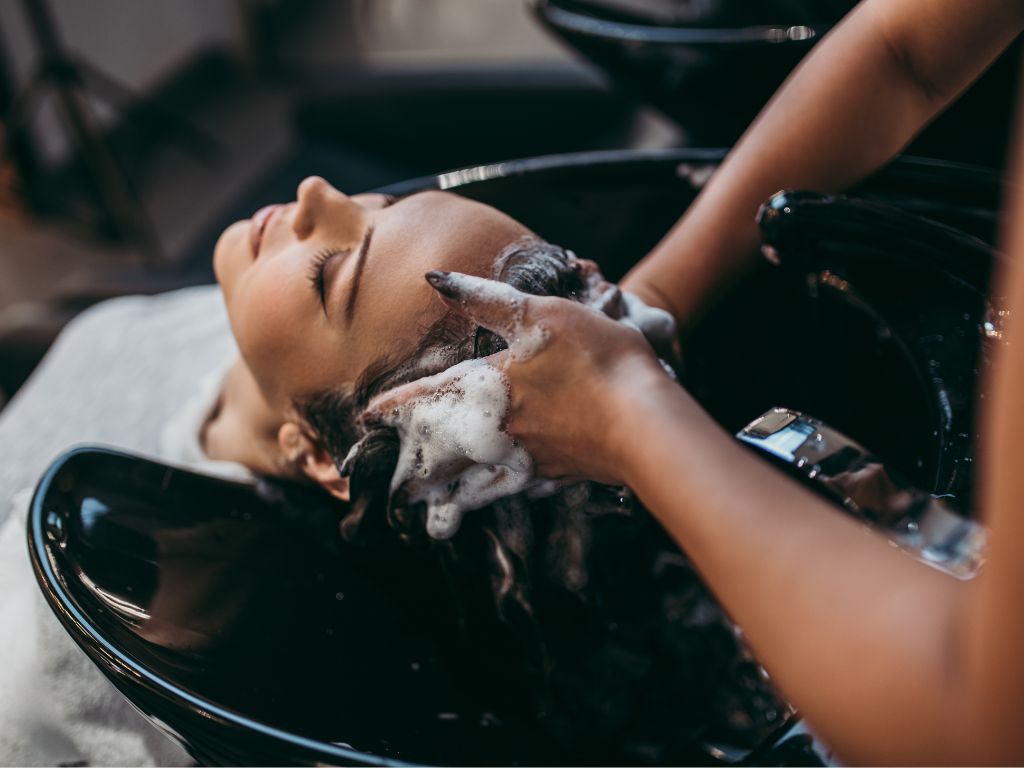What’s the Deal with Sulfates?
There have been some big, buzzy (ahem, Beyhive) new arrivals in the world of hair care recently, and we’ve certainly been paying attention. One big thing we’ve noticed is varying levels of “clean” ingredients. Now, the definition of “clean” is definitely murky and is constantly evolving; but, one particular ingredient seems to be conspicuously missing from most of these brands... even new brands who don’t label themselves as clean. That ingredient? Sulfates. Sulfates are powerful cleansing agents, promising to lift away dirt and oil, leaving hair clean and fresh; however, concerns have arisen regarding their potential negative effects on hair, scalp, and environmental health. So we’re diving to learn more about the pros and cons of sulfates so you can make informed decisions when picking up your next shampoo.

The Pros of Sulfates
Effective Cleansing: Sulfates, such as sodium lauryl sulfate (SLS) and sodium laureth sulfate (SLES), are excellent at removing dirt, oil, and product buildup from the hair and scalp. This cleansing action leaves hair feeling fresh, lightweight, and free from residues.
Lathering Power: Sulfates create a rich lather that many people associate with a thorough cleaning experience. The luxurious foam helps distribute the product evenly throughout the hair, ensuring every strand is cleansed effectively.
Affordable: Sulfate-containing shampoos are often more affordable than sulfate-free alternatives. This makes them accessible to a wide range of consumers, regardless of budget constraints.
Compatibility with All Hair Types: Sulfate-based shampoos are generally suitable for all hair types, from oily to dry, straight to curly. Their universal cleansing properties make them a convenient choice for many people.
The Cons of Sulfates
Stripping Natural Oils: While sulfates are adept at removing dirt and oil, they can also strip the hair and scalp of natural oils. This can lead to dryness, frizz, and increased vulnerability to damage, particularly for those with dry or chemically treated hair.
Scalp Irritation: Sulfates have been linked to scalp irritation, including redness, itching, and flaking, especially for individuals with sensitive skin or conditions like eczema or psoriasis. Continued use of sulfates may exacerbate these issues over time.
Fading Color-Treated Hair: Sulfates can cause color-treated hair to fade more quickly by stripping away the pigments from the hair shaft. This is a significant concern for those who invest time and money in maintaining vibrant hair colors.
Environmental Impact: Sulfates are not readily biodegradable and can persist in the environment, potentially causing harm to aquatic ecosystems. Their production and disposal contribute to environmental pollution, making sulfate-free alternatives more appealing for eco-conscious consumers.
The debate over sulfates in hair care products continues, with valid arguments on both sides. While sulfates provide effective cleansing and lathering properties at an affordable price, they also pose risks such as stripping natural oils, causing scalp irritation, and fading color-treated hair. Ultimately, the choice between sulfate and sulfate-free hair care products depends on individual preferences, hair type, and concerns regarding hair and scalp health. TLDR; you do you - we support your choices!

